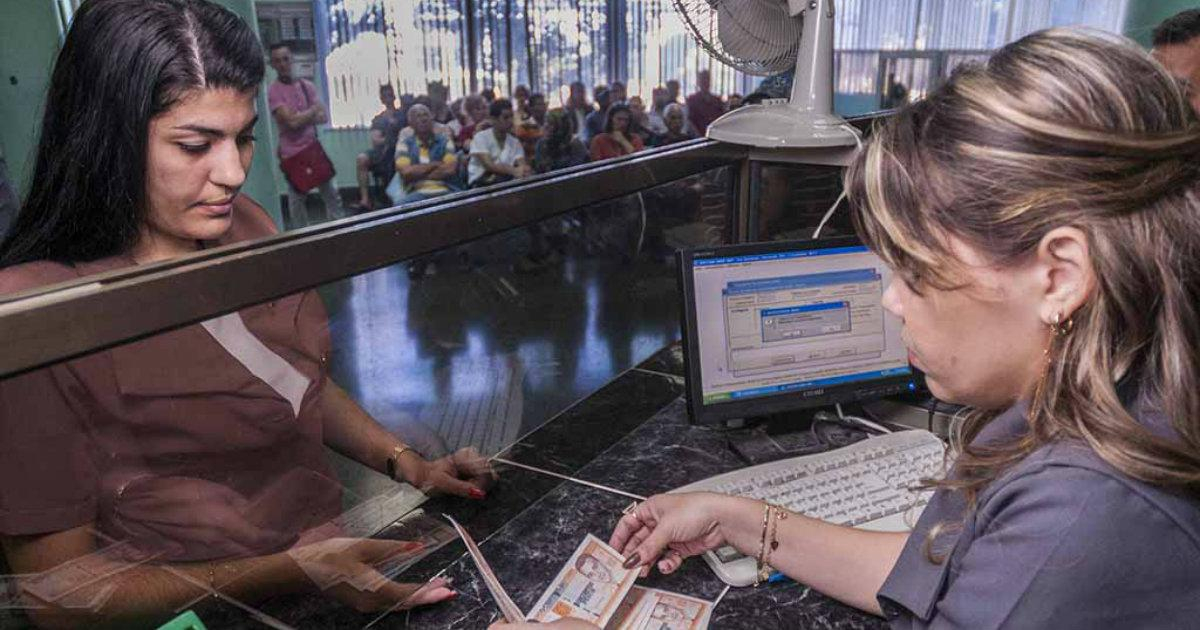
The Central Bank of Cuba (BBC) will deliver 23.5 Cuban pesos (CUP) for every dollar exchanged in its offices, the entity reported in an information note published on its social networks.
"Banks form their exchange rates for exchange operations with the population taking as a reference the Exchange Rate published by the BCC and apply the commercial margins approved by it," the note published on Facebook clarifies.
"As a result of the establishment of the exchange rate of the CUP against the USD of 24 CUP/1 USD in the monetary regulation process, the BCC decided to reduce the commercial margin for cash operations from 2.75% to 2.08333% which means that the population will receive 23.50 CUP for each USD exchanged," he adds.
The post has received various comments critical of the measure and the possible effects it will have.
"You yourselves, 'the government', are causing the over-inflation that is beginning to emerge, not respecting your own laws," says one of the users.
"The country waited for the special information so announced in recent days, where it was only new news that one dollar would be equivalent to 24 CUP with the new monetary reorganization. And now, as of January 1, this is not fulfilled in practice because a dollar is equivalent to 23.50 CUP for the commercial margin established by the bank. Why was this decision not informed from the beginning? Why does the population always have to lose?" questioned a Havana woman.
The claimant was referring to when on December 11, the president himself Miguel Díaz-Canel, when announcing the monetary unification process In Cuba, he reported that a single exchange rate of 24 Cuban pesos (CUP) for one dollar would be established.
The country is going through a deep crisis, mainly due to the serious general shortage of essential products. Only stores that operate in freely convertible currency (MLC) are moderately stocked. And they can only be accessed by those who have family or friends abroad who deposit currency in their accounts or who otherwise obtain that type of hard currency.
The devaluation of the Cuban peso (CUP) in the face of poor supply is one of the greatest risks facing the monetary unification process, in the opinion of experts.
For now, the price of the dollar on the black market has already been skyrocketing for days.
"If the banks are not going to sell USD, there is no one who will compete on the street and whoever wants to travel will have to buy it on the street, and whoever wants to buy it in the stores in MLC will have to buy it on the street. And on the street it is 40 CUP. It is true that they are going to put a few people in prison but (...) it is difficult for the banks to take much USD," another Internet user commented in the BBC post.
He value of the dollar in the informal market in the country rose before the monetary unification process came into force, as he was able to verify CyberCuba upon receiving exchange values.
Although the official exchange rate is 1 dollar for 24 pesos (CUP), on Saturday the classified ads page Revolico showed the real values reached by foreign currencies in the illicit trade network.
A look at the website allowed us to find dollar sales offers from 35 and 37 pesos, the cheapest, to 41, 43, 45 and 47 pesos. The highest figure is from a Havana resident who is selling 400 dollars for 60 pesos: "Don't bother just for the sake of it, if the price doesn't suit you don't call and that's it. I won't discount," he wrote.
In mid-December Marta Wilson González, minister president of the BCC, reported on the television Round Table that the Cubans would not be able to buy dollars or other freely convertible currencies (MLC) in Cuban pesos, due to the country's lack of financial liquidity.
"There are no possibilities today to buy MLC, because there is not enough availability to sell these currencies to the population, so today there is no free access," he said.
"At this moment the banks and CADECAs do not have the availability of MLC, whether dollars, euros or pounds sterling, to sell to the population," he added, although he did not deny that this currency could be acquired in the future.
What do you think?
SEE COMMENTS (11)Filed in: